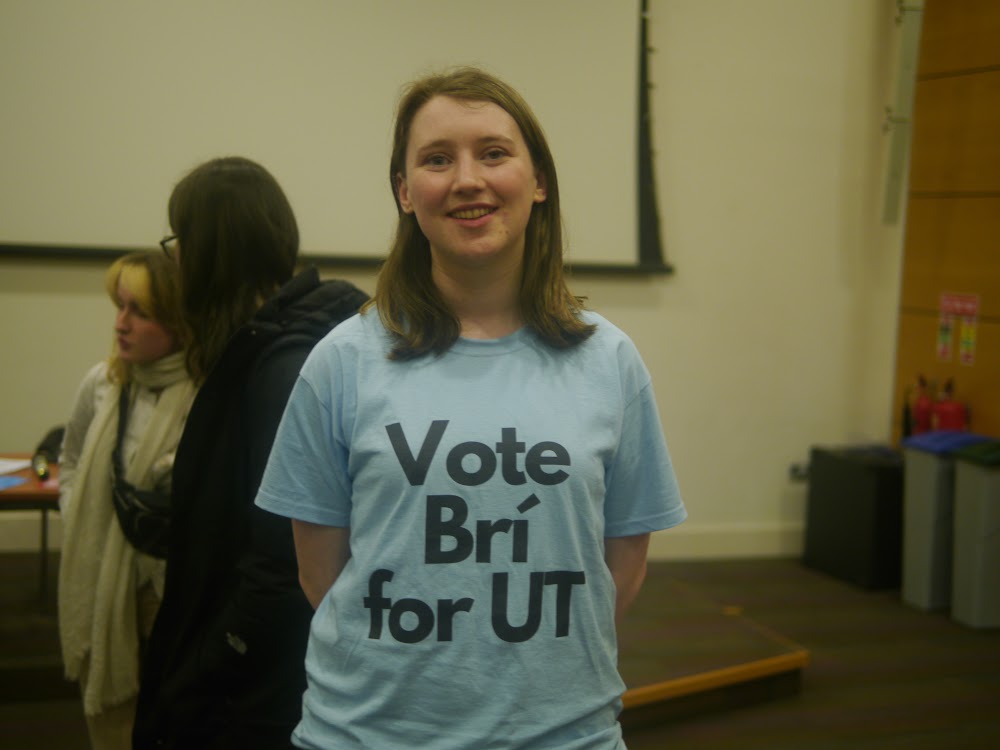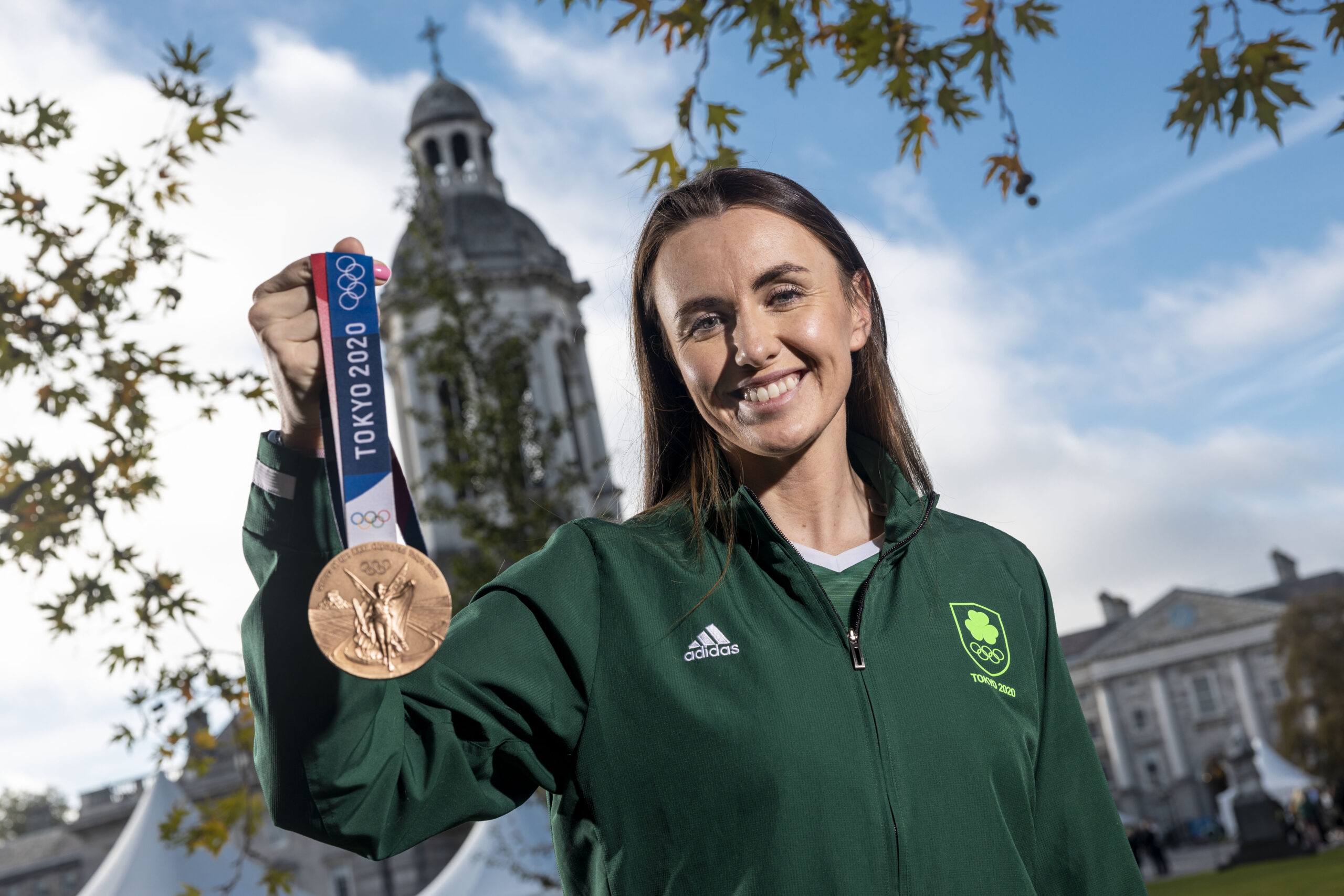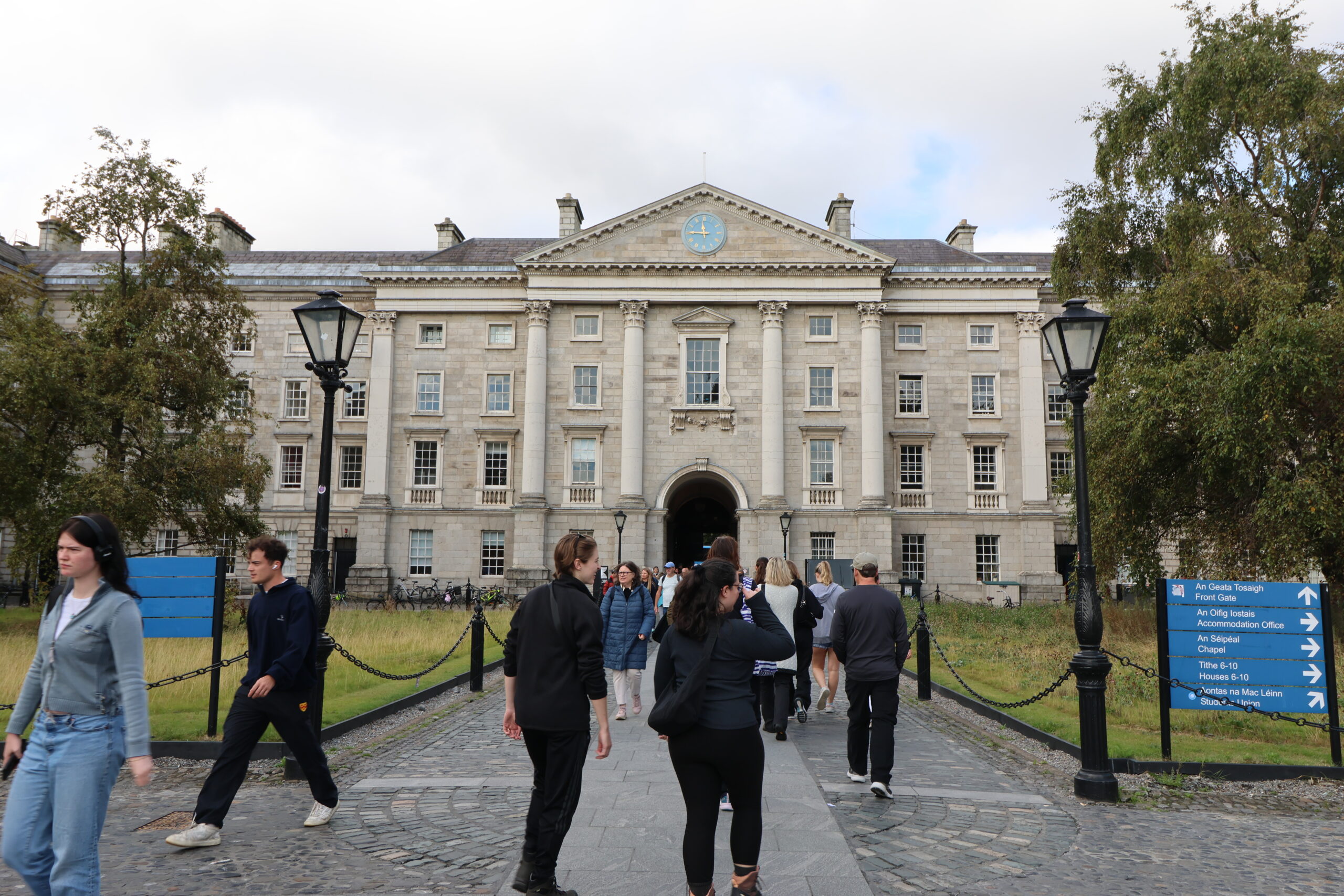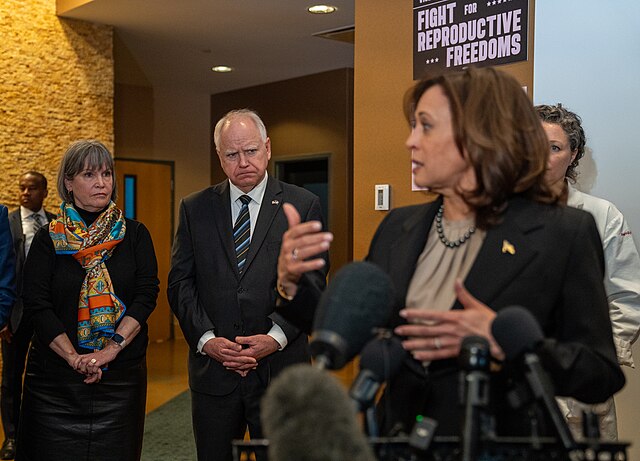Brídín Ní Fhearraigh-Joyce’s manifesto names “better coverage, new voices and more equality” as tenets of her campaign to be the next editor of The University Times. Certainly, conversation with the sabbat hopeful confirmed these core intentions while emphasising and expanding on other areas of her manifesto. Although far from half-baked, Brídín’s extensive manifesto would perhaps invite doubts to its viability. Creation of more newspaper sections, introduction of ethics and defamation training along with organisation of ‘UT Talks’ forums are just a few of Ní Fhearraigh-Joyce’s proposals. However, speaking with confidence and certainty, her ambition is sure to resonate with students’ aspirations for the paper.
As a previous Editor-in-Chief of TN2, current Deputy News Editor of The University Times and the Head Copy Editor of Evergreen, Ní Fhearraigh-Joyce’s qualifications for the job are tangible and indisputable. In the past year, she claims to have written 30 articles and edited over 100. In addition to having a huge volume of editorial, managerial and writing experience under her belt, Ní Fhearraigh-Joyce cites her “friendly, approachable and kind” personality as a potential asset to the job. “I really want to bring that energy to the newspaper”, she says – clearly valuing both the personal and the professional aspects of the role.
When describing the role of University Times Editor-in-Chief, Ní Fhearraigh-Joyce outlines the position in relation to others, saying: “I hope to encourage, mentor and empower other writers more than I want to amplify my own work”. Her definition of student journalism leadership is an altruistic one. Recognising an obligation both to the University Times’ staff and the student population as a whole, she says that “a large part of being the editor is setting up the systems that allow you to serve the students”. This includes making the paper a legible, accessible and trustworthy source of information. Her campaign suggests that a vote for Ní Fhearraigh-Joyce is a vote to serve students.
Ní Fhearraigh-Joyce views her extensive experience as matching the breadth and depth of the paper. Having liaised with multimedia teams, coordinated social media efforts, met deadlines and facilitated workshops, there are seemingly few future duties that she would be intimidated by. Conceiving of the paper as a “multi-dimensional apparatus”, she anticipates involvement in all areas. It is this vast experience that she claims also differentiates her from her competitor. Particularly owing to her work with anonymous sources, Brídín says she has her ear to the ground of campus goings-on.
The University Times’ relationship with the Student Union is a topic often fraught with confusion and complexity, however, Ní Fhearraigh-Joyce is resolute when she insists on the importance of maintaining the paper’s independence from the Student Union. “The University Times can and does criticise the Union”. She argues that the paper’s focus can fixate on the Student Union and neglect other subjects, reasoning that “of course the Students Union is a focal part of many students’ experiences in College, but it is not the only part”.
Always measured and considered in her responses, Brídín reflected on the features of Clara Roche’s tenure that she should like to continue, and those she should like to change. “I think Clara has done a really good job in building the staff”, she says, and this is a momentum she hopes to build on. She sees increasing size and therefore diversity as instrumental to bettering the paper. Clarifying her push for diversity, Ní Fhearraigh-Joyce envisions more involvement from STEM students and an active stance against the white, middle class bias that often pervades journalism. Promising real solutions to real problems, Ní Fhearraigh-Joyce intends to reinstate the UT journalism school. Already in talks with the Trinity Access Programme and the Access Officer, she is fleshing out the feasibility of bringing it back to benefit future student journalists.
A key point in her manifesto is the promotion of the Irish language within The University Times. As Irish has the same status as English in the country’s constitution, Brídín believes that Irish-speaking students are entitled to media catered to them: “I am seeking to hire numerous Irish editors, and I will write pieces in Irish myself. I want to have someone writing articles in Irish on the news team. I will also ensure that every editorial is translated into Irish”. She also vows to include Irish language content in every issue and in social media content. Ní Fhearraigh-Joyce’s investment in integrating the Irish language into the paper’s makeup is palpable as she expresses “I want to really cement The University Times as being an important source of information through Irish, as it is through English”.
Accessibility within the paper also appears of great importance to Ní Fhearraigh-Joyce. She has been researching alternative locations for meetings, as the current House 6 location is exclusionary to wheelchair users and those with limited mobility. She also hopes to secure accessible venues for social events.
Neither does Ní Fhearraigh-Joyce neglect the paper’s Radius and Magazine components. Praising the arts and culture supplement’s current work, she hopes to have more free and on-campus events advertised in Radius to accommodate students on a tight budget. As for the magazine, “I think I would like more contributors with the magazine is my big thing”, she says. In terms of The University Times’ social media activity, Ní Fhearraigh-Joyce values the paper’s digital presence as much as its print one. Managed by a team of delegated social media editors, Ní Fhearraigh-Joyce would like content promoted every day and a posting schedule to compensate for quieter news days. She sees an appealing visual culture as essential in connecting writers’ work with more readers, cautious that if the paper’s online presence is overlooked then its contents will be, too.
Always a sensitive subject, when asked about ensuring an adherence to the editorial standards of the paper and a commitment to unbiased reporting Ní Fhearraigh-Joyce assured that “the editorial ethics need to be communicated to every writer”, highlighting a particular relevance within the news sector. Acknowledging the paper’s alleged source confidentiality breaches in the past, she wants to keep The University Times in good repute by having a process to guarantee source anonymity and by instilling confidence in prospective sources that they will be treated with dignity and respect. Having strengthened her own knowledge of Irish media law, Ní Fhearraigh-Joyce now wants to share her lessons with other staff members. She also intends to consult the college’s spokesperson for any media-related queries.
At times, Ní Fhearraigh-Joyce’s attitude towards the interview felt cagey. She questioned UT’s decision not to share the questions with her beforehand, despite this being a stance applied to all candidates. Ní Fhearraigh-Joyce also asked to check her manifesto several times during the interview which, while a testimony to her efforts at clarity, gave some of her answers a somewhat rehearsed and recited feel.
“I would see myself as responsible to the entire staff as well as to the student body”, encapsulates Ní Fhearraigh-Joyce’s attitude towards her candidacy. Her promise to make “news that is relevant, important, concise, clear and informative” is emblematic of her vision of the Editor-in-Chief role as one of service.








